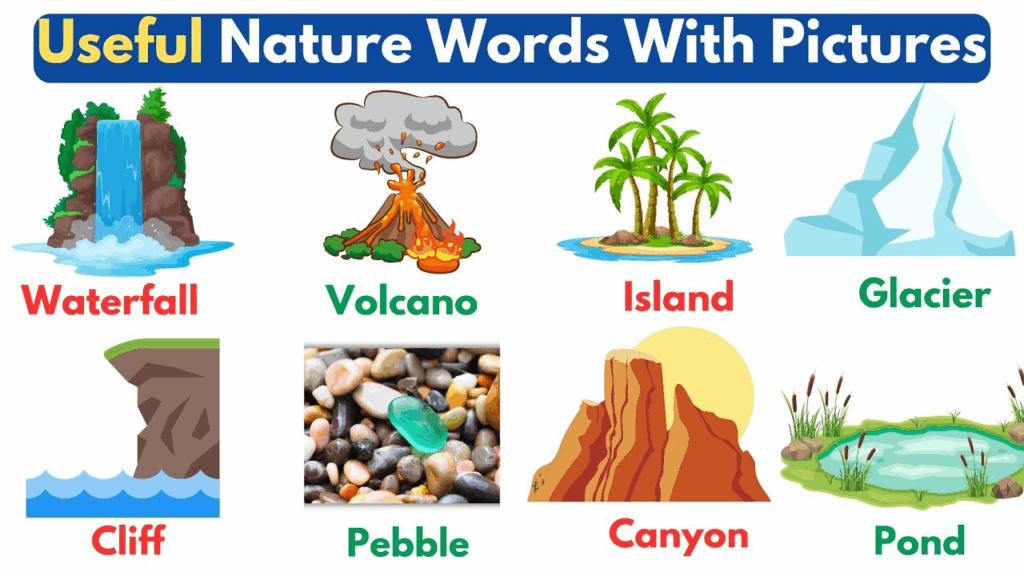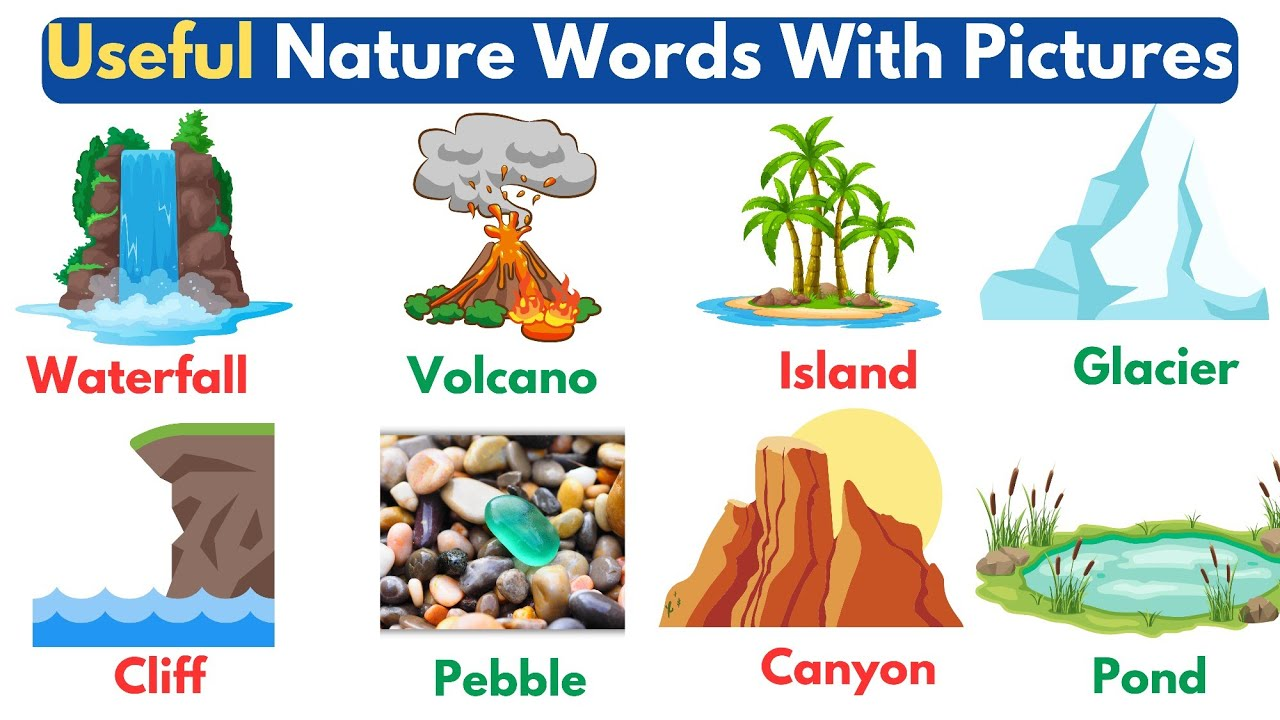
Understanding nature and weather vocabulary is one of the most practical steps in language learning. Whether you are traveling abroad, making small talk, or simply describing your surroundings, these words help you sound natural and confident. Talking about the weather is also a common way to start conversations, while nature terms enrich your ability to describe scenery, seasons, and outdoor experiences. In this article, we’ll explore essential vocabulary, provide real-life examples, highlight seasonal expressions, and give practice tips to improve memory and fluency.
Why Nature and Weather Vocabulary Matters
- Universal Conversations – Weather is one of the most common topics in small talk.
- Travel Usefulness – Knowing nature terms helps when hiking, sightseeing, or asking for directions.
- Cultural Relevance – Many idioms, poems, and traditions reference nature and seasons.
- Language Growth – Expands your descriptive ability and makes conversations more engaging.
Basic Weather Vocabulary
Here are some essential words used in daily conversations:
- Sunny – A clear sky with sunshine.
- Cloudy – Sky covered with clouds.
- Rain – Water falling from the sky.
- Snow – Frozen ice crystals falling in cold weather.
- Wind – Moving air.
- Storm – Bad weather with heavy rain, thunder, or lightning.
- Hot – High temperature.
- Cold – Low temperature.
Example Sentences:
- “It’s very hot today, I need a cold drink.”
- “The weather will be rainy tomorrow.”
- “The sky looks cloudy but still beautiful.”
Nature Vocabulary
These are words to describe the natural environment:
- Mountain – A high landform.
- River – Flowing water moving to the sea.
- Sea/Ocean – Large body of saltwater.
- Forest – A large area filled with trees.
- Tree – A tall plant with branches.
- Flower – A colorful plant blossom.
- Sky – The space above the earth.
- Soil/Earth – Ground that plants grow in.
Example Sentences:
- “The mountain view is stunning.”
- “This river is very clean and peaceful.”
- “The flowers are blooming beautifully in spring.”
Describing Seasons
Every season brings unique weather and natural changes. Knowing vocabulary for each helps in travel and conversation.
- Spring – Warm, flowers, blossoms, growth.
- “Cherry blossoms bloom in spring.”
- Summer – Hot, sunny, beach, swimming.
- “We go swimming in the sea during summer.”
- Autumn/Fall – Cool, leaves, harvest, wind.
- “The autumn leaves are very colorful.”
- Winter – Cold, snow, ice, freezing.
- “It snows heavily in winter.”
Overview Table
| Category | Word | Meaning/Use | Example Sentence |
|---|---|---|---|
| Weather | Rain | Water falling from sky | “It will rain tomorrow.” |
| Weather | Sunny | Clear sky with sun | “It’s sunny outside today.” |
| Nature | Mountain | High landform | “The mountain looks beautiful at sunset.” |
| Nature | River | Flowing water | “The river is calm and quiet.” |
| Season | Autumn | Cool season with leaves falling | “Autumn leaves are red and yellow.” |
| Season | Winter | Cold season with snow | “I love skiing in winter.” |
Tips for Practicing Nature and Weather Vocabulary
- Check Daily Forecast – Practice describing the weather in your target language every morning.
- Use a Seasonal Journal – Write short notes about changes in nature around you.
- Practice Outdoors – When walking, say the words for things you see: trees, rivers, clouds.
- Learn with Images – Connect pictures of weather and landscapes with the correct words.
- Make Mini Dialogues – Practice simple conversations:
- A: “How’s the weather?”
- B: “It’s sunny and warm today.”
Common Mistakes to Avoid
| Mistake | Why It Happens | Correction |
|---|---|---|
| Using only “good weather” | Learners overuse simple phrases | Learn more terms: cloudy, stormy, windy |
| Confusing hot weather vs. hot object | “Hot coffee” vs. “Hot day” | Use context and practice both |
| Forgetting seasonal terms | Learners stick to general words | Study spring, summer, autumn, winter sets |
| Mixing nature features | Confusing river, sea, and lake | Learn with photos and real-life examples |
| Not making sentences | Only memorizing words | Always add a sample sentence |
Real-Life Practice Scenarios
- Small Talk: “It’s a beautiful sunny day, perfect for a walk.”
- Travel: “Is the hotel close to the river?”
- Outdoor Activities: “We went hiking in the mountains last weekend.”
- Seasonal Greetings: “Happy Spring! The flowers are so colorful now.”
By practicing these situations, you’ll gain fluency and comfort in everyday conversation.
Final Thoughts
Learning nature and weather vocabulary is an essential step toward fluency. These words are easy to practice daily since you can describe the sky, temperature, or natural surroundings wherever you are. By combining them with seasonal expressions and real-life examples, you’ll quickly become more confident in conversations. Whether chatting with friends, traveling, or simply appreciating the world around you, mastering this vocabulary makes your language learning both practical and enjoyable.
3 Best One-Line FAQs
Q1. Why is weather vocabulary important in daily conversations?
A. It helps in small talk, travel, and describing everyday surroundings.
Q2. How can I remember seasonal vocabulary easily?
A. Connect each word with a real-life image or activity, like snow with skiing.
Q3. What’s the best way to practice nature words?
A. Use them in daily life by describing the environment around you.

